view abstracts – view bios

|
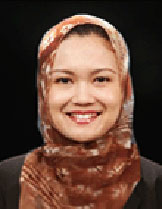 |
Zaleha Abdullah, Project Manager, BLOSSOMS-Malaysia
"Teacher's Readiness in Developing BLOSSOMS for Classroom Learning in Malaysian Schools"
This project involves discovering the requirements for developing BLOSSOMS video lessons among teachers in Malaysia. Ten in-depth interviews were conducted with teachers from secondary schools who participated in the project. Teachers' transcripts indicate that they were initially uncomfortable with the project due to being burdened by too many school related activities. Their interest towards the project took a turn and peaked as they discovered the true potential of BLOSSOMS in helping to improve teaching and learning for STEM. Relative to their interest, the teachers also emphasize on the need for guidance, particularly in generating creative ideas to deliver STEM knowledge with a unique approach. This led to the discussion of integrating cognitive and social apprenticeship methods in the process of developing BLOSSOMS video lessons.
|
> top
|
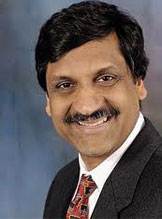 |
Anant Agarwal, President of edX
"The Developing World of MOOCs"
Digital technology has transformed countless areas of life from healthcare to workplace productivity to entertainment and publishing. But education hasn’t changed. EdX is a MOOC (massive open online course) initiative that aspires to reinvent education through online learning. EdX’s mission is to dramatically increase access to quality education for students worldwide through MOOCs, while substantially enhancing campus education in both quality and efficiency through blended models that incorporate online elements into on-campus courses. This talk will provide an overview of MOOCs, and share learner stories that reveal how they are increasing access to education worldwide. The talk will also present some of the vexing challenges of MOOCs such as sizeable stopout rates and what can be done to improve outcomes. The talk will also discuss where MOOC technologies are headed, and how they can enhance campus education. Finally, the talk will provide some recent research results that will allow us to improve online and on-campus education, and discuss how MOOCs might evolve in the future.
|
> top

|
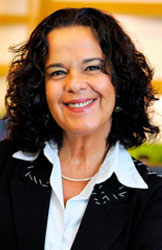 |
Lúcia Araújo, CEO of Canal Futura, an educational TV network in Brazil
"The Role of Educational Television in Providing Access to Online Educational Resources in Brazil"
Brazil has reached the benchmark of 100 million wideband connections, but their access is poorly disseminated outside the big urban centers and costs are still high. A great part of the Brazilian society has a smartphone, but infrastructure in place to support navigation is lacking. In the face of all the new online resources and emerging technologies, a change in education’s scenario is inevitable. How can an educational TV contribute to this scenario of social transformation? This presentation will present challenges and opportunities to create new models of production and content distribution.
|
> top
|
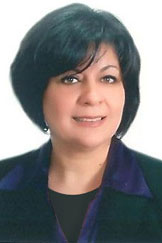 |
Faten Shaheed Ardekany, Project Manager, BLOSSOMS-Saudi Arabia
"MIT BLOSSOMS in Saudi Arabia"
Saudi Arabia is currently in the midst of an unprecedented wave of education reform and development, and though large-scale plans are in place and generous budgets set aside, the country’s ambitious vision will take some time to realize. In the meantime there remains a considerable mismatch between the supply and demand of human capital both in terms of the quality and quantity of labor available, which is holding back the region’s development. For the short to medium term, innovative e-learning initiatives such as BLOSSOMS are a wide-reaching and cost effective way to help bridge the critical gaps that currently exist. This presentation will provide an overview of the BLOSSOMS project in Saudi Arabia, the impact and challenges faced, as well as sharing some valuable anecdotes and lessons learned along the way.
|
> top

|
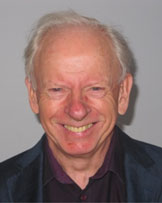 |
Tony Bates, Research Associate with Contact North, Ontario’s Distance Education & Training Network
"Applying Best Practices in Online Learning to MOOCs"
There had been more than 20 years of research and experience in online learning before the development of MOOCs. This presentation will summarize the main lessons that can be applied to the design of MOOCs to make them more effective and will explore some ways in which MOOCs might enable best practices in online learning to be scaled up on a massive scale.
|
> top

|
 |
Sir John Daniel, Former President of The Open University (UK) and of the Commonwealth of Learning
"MOOCs: What Lies beyond the Trough of Disillusionment?"
With universities all over the world now gearing up to offer MOOCs, we are reaching the ‘peak of inflated expectations’ that is followed, in the Technology Hype Cycle, by the ‘trough of disillusionment’. But what lies beyond that? Will MOOCs have any lasting impact on higher education? Will universities offering MOOCs ever climb the ‘slope of enlightenment’ and reach the ‘plateau of productivity’ that completes the cycle?
|
> top

|
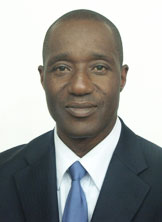 |
Bakary Diallo, Rector of the African Virtual University, Nairobi, Kenya
"The Future Direction of Virtual Universities: A Perspective from the African Virtual University"
The African Virtual University (AVU) is continually considering emerging technologies and innovative practice in an attempt to unlock the potential of distance and eLearning in Africa. It has changed its delivery model several times since its inception in 1997. A program consortium model was adopted in 2011 for which OERs play a central role. The organisation is considering integrating the MOOCs into a vast multinational eLearning project involving 27 universities in 21 African countries. AVU has boosted its capacity in innovation, research and development in order to keep up with future developments.
|
> top

|
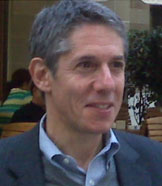 |
Robin Horn, Director, Programmes, The Children's Investment Fund Foundation (UK) and former Education Sector Manager for the World Bank's Human Development Network
"The SABER Initiative"
The World Bank, with support from its partners, has recently launched the “System Assessment and Benchmarking for Education Results” (SABER) initiative designed to help countries systematically diagnose the capacity of their education system to deliver and sustain learning for all. SABER’s goal is to help countries align governance, incentives, finance, human resources, and quality assurance on the objective of raising learning outcomes. The initiative’s policy metrics and diagnostic toolkit is built on research evidence and on the examination of education policies and practices of well performing or rapidly improving education systems. By leveraging global knowledge and good practice, SABER fills a gap in the availability of policy data and evidence on what policies matter most to improve the performance of education systems. To facilitate the use of a systems approach, SABER's diagnostic tools are structured around key education policy domains, including Teacher Policy, Education Finance, Student Assessment, and School Accountability and Autonomy, among others. It is hoped that the SABER initiative will integrate with the efforts of other partners to build a knowledge base of education policies in countries everywhere and provide means for policymakers and researchers to use the global knowledge base to increase learning outcomes for all.
|
> top

|
 |
Ok-hwa Lee, Professor of Educational Technology at Chungbuk National University in South Korea and pioneer of that nation’s educational movement for computer education
"A Conceptual Model for edu3.0"
Technology and new pedagogy have been invited to solve the educational problems of balancing equity and efficiency in education when the pressure of being competitive in global education is combined with budget cuts. IT in education was implemented on a massive scale, but now some of the assumptions of using TEE are challenged. Will educational technology contribute to the well being of students who will live in the innovation world? Do we have a good vision for the future and a sound educational system to cope with the future? If technology is the game changer, how can school systems employ technology wisely? The conceptual model for edu3.0 will be discussed with respect to the interests and roles from various educational elements.
|
> top

|
 |
Patricio López del Puerto, President of the Virtual University of the Tecnológico de Monterrey, Monterrey, Mexico
"Universidad TecVirtual"
With 70 years of experience in higher education, the Tecnológico de Monterrey System has evolved from an institution of higher education which began with 350 students, into a full system with over 60 campuses in Mexico, offices in several countries of Latin America and a TecVirtual University. The TecVirtual University was created by the Tecnológico de Monterrey System in order to deliver first class education to new educational environments and to people in remote locations. Throughout its historical development, Universidad TecVirtual is consolidated as one of the most prestigious distance education institutions of the world. Currently, TecVirtual University provides online education to more than 191,000 students from high school to life-long learners; including 11,800 Master Degree students, 8,800 High School and Undergraduate students and 170,000 Continuing Education students in Mexico and abroad. The presentation will describes the experience of TecVirtual University in designing and delivering high quality distance education programs for the last 24 years, the changes and innovations developed during its existence and the challenges it faces with the new technologies and learning strategies.
|
> top

|
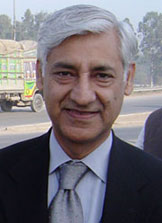 |
Naveed Malik, Founding Rector of the Virtual University of Pakistan, Lahore, Pakistan
“e-Learning, Tablets, K-12 Education and all that stuff!”
The Virtual University of Pakistan (VUP) has established an enviable reputation for quality and is rapidly becoming the new standard for technology mediated tertiary education in the country. However, the K-12 sector poses some critical challenges with schools simply not delivering the required education. Schools incorporating the latest technologies, including the extensive use of networked tablets, may offer one solution. While lively e-Books will form the heart of the content for early classes, the nature of the content will morph into a Blended Learning style for higher classes, closely following the MIT BLOSSOMS model, while being more directly aligned with the prescribed curriculum. Content will be designed in such a way that while students are learning, their teachers are also being re-trained, thereby closing the supply and demand gap for teachers on a fast-track basis. With its own schools, VUP plans to take affordable high quality education down to the school level.
|
> top

|
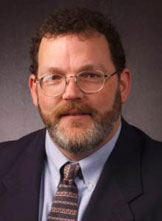 |
Clifford Missen, Director, the Widernet Project and eGranary, University of North Carolina, Chapel Hill
"Only Five Billion to Go!"
As wonderful as the “World” Wide Web might be, it only reaches a third of the planet’s population. For the bulk of the world’s poor people, who urgently need access to information and education, waiting on the Internet is not a good strategy. This talk will highlight off-line and hybrid strategies for delivering digital resources to under-served populations. With twelve years experience delivering the low-cost computing and the eGranary Digital Library to hundreds of locations around the world, the director of the WiderNet Project will highlight the promise and pitfalls of information caching, open educational resources, intranets, local content, and handheld devices in building robust community 'knowledgespheres'.
|
> top

|
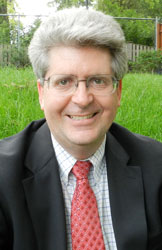 |
Fernando Reimers, Director of the International Education Policy Program at the Harvard University Graduate School of Education
Technology-Enabled Education: To What Ends?
The rapid development of telecommunication and computing technologies over the last two decades have enabled a wide ranging global expansion of learning opportunities, outside of schools and supporting formal education. An assessment of the effectiveness of these developments requires first clarity about the purposes they have served. This presentation will describe an evaluative framework to examine technology-enabled education, and illustrate its application with regards to various forms of technology supported educational innovations. The framework contemplates the purposes of access, quality and relevancy. The discussion of relevancy focuses on the best scientific consensus around 21st century skills.
|
> top

|
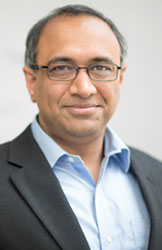 |
Sanjay Sarma, Director of MITx and the MIT Office of Digital Learning
“The Magic Beyond the MOOCs”
While there is justifiable excitement about MOOCs, online education is designed to address one aspect of education: the instruction. Education in residential universities is a rich bundle of activities and experiences that MOOCs do not attempt to encompass. The magic that occurs on campus—whether it is apprenticeship and mentoring with faculty, or peer learning, or participation in a club, or, simply enjoying the pleasure of other students' company—is special and can be enriched by MOOCs. I will describe our thoughts and experiments in enhancing this magic, rather than reducing it, in a residential university that uses digital tools extensively.
|
> top

|
|
|


